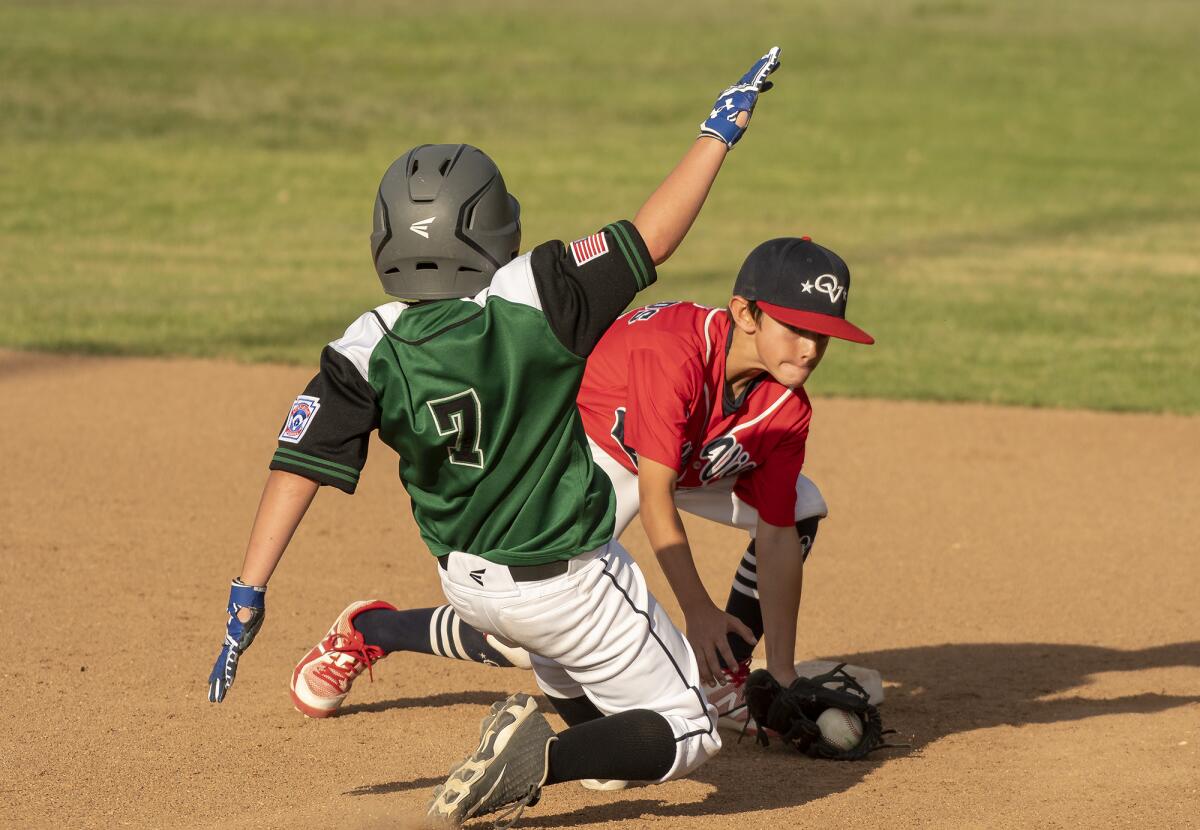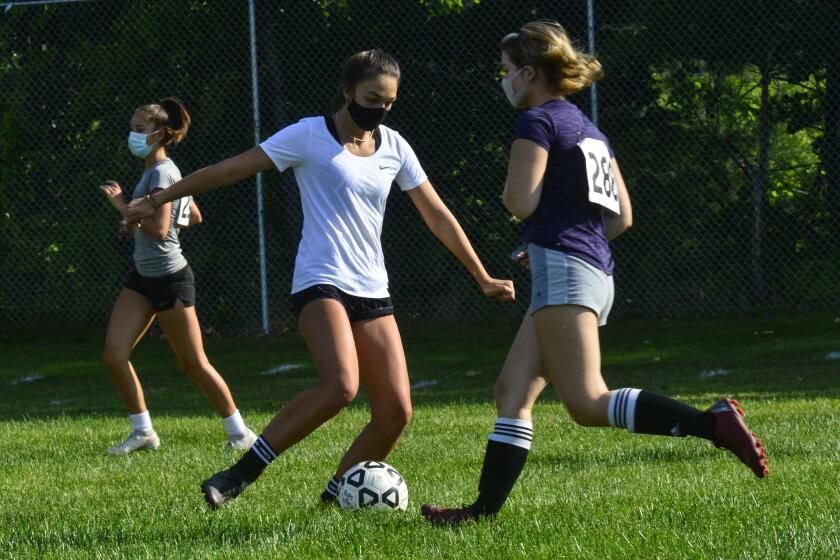Hey, Little League dads, make room for more female coaches like me

- Share via
“Our coach is a woman!” is one of the first texts I received from a friend about my 7-year-old son’s soccer team this past fall.
Coach Liz appeared like a mirage, a woman willing to enter a space full of dads whose childhood athletic dreams stood to be lived out through their sons. It’s discouraging that her presence on the field should still be so surprising to the kids, and to their parents too.
Last year was the 50th anniversary of Title IX, which has significantly opened the doors for female participation in school athletics. But when it comes to coaching, women continue to lag behind.
Who can blame referees for quitting because they aren’t willing to put up with abuse and assaults?
That’s partly because early gender norms set in youth sports define men as leaders and experts, and women as administrative helpers. The lessons children are learning appear to carry over into the perceptions adults have of female coaches too.
In a survey of NBA and NFL fans, 31% said female coaches are less qualified than their male counterparts, and 30% said male athletes won’t respect them. At the college level, four out of the top eight men’s sports have zero female coaches. Women’s coaching participation has remained relatively stagnant for the last two decades: Women have consistently made up less than half of head coaches for women’s teams, and less than 5% for men’s teams.
Sports culture begins early, with youth sports. Run by parent volunteers, this space echoes similarly disappointing gender statistics. Men make up over 74% of head coaches in youth athletics and are twice as likely as women to coach the opposite sex.
The first time I volunteered with my son’s baseball team, I was new to Little League, having never played sports as a child. Along with assorted administrative duties — sending reminders to parents, arranging snacks and parties and background checks — I tried to extend my reach during practices or games, helping in the dugouts, getting kids ready to get to their positions on the field and making sure they knew they were up next at bat.
As a woman of color who’d never been part of a sports team in a sea of white men who purportedly had, every time I stepped out onto the field, I felt like I was trying on shoes that were too big and being forced to run in them. I had confidence in my abilities to lead the kids, but I deeply wanted to be a part of the bonding and teaching moments on the field. To step into a bigger role felt like robbing the kids of better — male — leadership and experience and was not a move encouraged or supported by my parental peers who seemed satisfied with the status quo. Meanwhile, men who had no sports experience happily ran onto the field, where they were welcomed by other men to play catch with their sons.
Youth sports leagues could change the status quo by prioritizing recruitment and training of female coaches. Building a supportive and positive environment for new as well as experienced female coaches would increase their likelihood of volunteering long-term. (Male coaches have more years of coaching experience and report a higher likelihood to continue coaching.) Programs such as Women Coach LA and We Coach train and recruit women coaches for girls’ sports, where male coaches also dominate. The same should be replicated for boys’ sports. For our girls, female coaches offer empowerment and modeling. For our boys, female coaches help shift mindsets toward a more inclusive future.
Supporting the psychological well-being of young athletes feels especially urgent now as we emerge from the COVID-19 pandemic.
I recently received this spring season’s roster for my 7-year-old’s Little League team. In the email, it was noted by the head coach that he’d received multiple responses from some of our “awesome dads” in his query for assistant coaches. The only mom mentioned in the email had “graciously volunteered” as “team parent,” a thankless administrative role that’s important, but nothing like participating in a coaching role.
In a fit of ire, and perhaps hope at building a new legacy of sports involvement for myself, I threw my name into the ring as scorekeeper. It’s also an administrative task, but one that feels less decidedly domestic. For my 4-year-old’s tee-ball team, I took an even bigger swing and offered to be assistant coach.
It would be easier to step into these spaces if they felt more accessible and welcoming. But until there are more efforts to support and recruit female coaches for our kids’ teams, I’m hoping I can find mentorship and support. And, just maybe, I’ll experience some of the joy of being a coach to my kids felt by so many of the men around me, as they tap into the childhood nostalgia of playing ball with their own dads.
Avni Shah is a writer based in Los Angeles.
More to Read
A cure for the common opinion
Get thought-provoking perspectives with our weekly newsletter.
You may occasionally receive promotional content from the Los Angeles Times.








